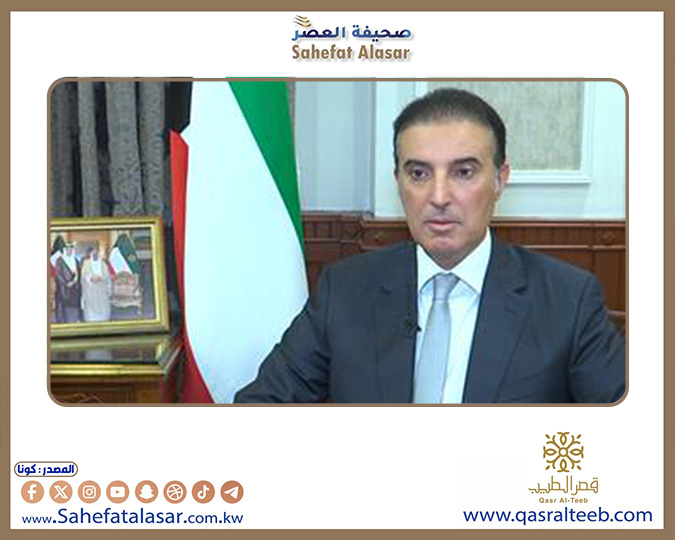


Kuwait's Permanent Representative to the Arab League, Ambassador Talal Al-Mutairi, affirmed today, Saturday, that over eight decades of political and geopolitical changes, the League has demonstrated its ability to steer the course of joint Arab action and express the true image of the issues facing Arab nations.
In a statement to the Kuwait News Agency (KUNA) on the occasion of the 80th anniversary of the establishment of the Arab League, which falls on March 22, Ambassador Al-Mutairi described the "venerable organization" as a fundamental pillar of multilateral Arab action, emphasizing its prominent presence on the international stage through cooperation with regional and international organizations worldwide.
He added that one of the first steps in Kuwait's foreign policy since independence was joining the Arab League, recognizing the necessity of being part of a bloc that expresses Arab identity and unites the peoples of the region. He explained that Kuwait's accession to the League immediately after gaining independence in 1961 helped the country expand into the broader "international arena" and gain membership in various regional and international organizations. This had a direct impact on showcasing Kuwait's true image and its significant potential in supporting the journey of joint Arab action.
Ambassador Al-Mutairi continued by stating that the Arab League acknowledges and takes pride in the role Kuwait plays within its halls through initiatives that contribute to strengthening joint Arab action. He highlighted Kuwait's steadfast support for the continuity of the Arab League's work. He noted that Kuwait relies on the League's role as the primary umbrella for the peoples of the Arab region, given its historical legacy in the region's journey.
He emphasized that the establishment of the Arab League came after the region had witnessed wars, aiming to enhance coordination and cooperation among Arab countries that were independent at the time. These countries were able to carry the banner of defending the causes of Arab peoples. Ambassador Al-Mutairi affirmed that over the past eight decades, the Arab League has managed to overcome all obstacles that hindered its continuity as a prominent regional organization, playing a significant role on both regional and international stages and bearing the concerns and issues of the region's peoples in international forums.
He stressed that the League continues to play an active role today in strengthening ties among the peoples and countries of the region, despite the stereotypical notion that it "does not play as significant a role as other organizations." In this regard, he explained that the League has presented numerous positive initiatives in support of Arab positions, highlighting the important role played by its missions in several key capitals in supporting Arab efforts and conveying their voices.
Regarding the challenges facing the Arab League, Ambassador Al-Mutairi stated that the current challenges are not limited to the League but also affect all organizations and institutions of the international community. He explained that "the changes the world is witnessing today require greater dynamism in coordination and cooperation among regional groups to overcome geopolitical changes." He pointed to the significant role the League plays in coordinating among Arab countries to address the challenges facing the region, foremost of which is the Palestinian issue. He said, "Since October 7, 2023, the Arab League has played a major role in calling for numerous meetings at the level of delegates, ministerial meetings, and summits."
He noted that the most recent of these meetings was the extraordinary Arab Summit, which was called for and hosted by Egypt earlier this March, resulting in important outcomes in favor of the Palestinian cause and supporting the rights of the Palestinian people to live on their land, known as the Arab Plan for the Reconstruction of Gaza.
Ambassador Al-Mutairi concluded by stating that "Arab countries today fully believe that they bear a great responsibility in unifying the Arab stance toward the significant changes our region is facing. This underscores the necessity of achieving more effective cooperation and solidarity among Arab countries."
The Arab League, which is the oldest international organization established months before the United Nations on March 22, 1945, saw its founding charter signed by seven Arab countries: Egypt, Syria, Saudi Arabia, Jordan, Lebanon, Iraq, and Yemen. Cairo was chosen as its permanent headquarters.